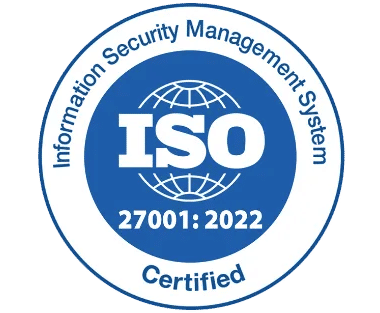Top 7 Contract Management Software for Small Business In 2025

Your business is growing, and every new deal is a step toward something bigger. More clients, more partnerships, more opportunities to scale. But as your business expands, so does the need for clear, organized contract management.
Keeping track of contracts should be a seamless process, not a continuous challenge of staying ahead. Yet, many small businesses rely on scattered emails, outdated spreadsheets to manage contracts. This can lead to missed renewal opportunities, unexpected costs, or unnecessary legal stress.
The great news? Managing contracts does not have to be complicated.
With the right tools, you can turn contracts from a source of frustration into a powerful asset for growth. A reliable contract management software for small business helps you stay on top of deadlines, ensures compliance, and keeps every agreement easily accessible.
In this guide, we will explore how small businesses can simplify contract management, avoid common pitfalls, and leverage modern solutions to save time and focus on what truly matters—building and scaling a successful business.
Why Contract Management Software for Small Business Is Important
For small businesses, every agreement holds value whether it is securing new clients, managing vendor partnerships, or ensuring compliance. But as operations grow, handling contracts manually can slow things down, creating inefficiencies that limit business potential.
Contract management software for small business is not just about organizing documents; It is a tool that helps small businesses scale efficiently. By automating processes, reducing risks, and improving financial visibility, it ensures businesses can focus on what truly matters growth.
Let us explore how contract management software becomes a catalyst for expansion.
1) Faster Deal Closures Drive Revenue Growth
In a small business, every new contract represents a potential revenue stream. However, when agreements get stuck in back-and-forth revisions, approvals, or signing delays, it affects cash flow and slows down expansion. Traditional contract processes rely on manual follow-up and outdated document versions all of which contribute to delays.
With contract management software for small business in place, they can,
With effective software, businesses can move faster and close deals with confidence:
- Pre-approved contract templates ensure consistency – Instead of drafting agreements from scratch, businesses can create legally sound contracts in minutes, ensuring every client gets the same level of professionalism.
- E-signature integration – Clients and partners can sign contracts instantly from anywhere in the world, reducing turnaround times from days to minutes.
- Real-time tracking provides contract status visibility – No more guessing whether a client has reviewed or signed an agreement; teams can see the exact stage of the contract lifecycle and act when needed.
Faster contract execution means revenue is not left sitting in a pipeline it gets realized quickly, allowing small businesses to reinvest in growth initiatives.
2) Strengthen Vendor Partnerships
As small businesses grow, they rely on vendors and service providers to support operations. Whether it is sourcing raw materials, hiring third-party logistics, or outsourcing IT services, strong vendor relationships are critical for smooth operations. However, if contracts with suppliers are mismanaged, businesses may face supply chain disruptions, unexpected price hikes, or non-compliance with agreed-upon terms. A best contract management software helps in,
- Providing centralized access to vendor agreements – No more scrambling to find terms and conditions when a supplier dispute arises. Every agreement is stored securely and easily accessible.
- Automating renewal tracking – Businesses can proactively renegotiate contracts before they auto-renew, ensuring they always have the best pricing and service levels.
- Enforcing contractual obligations – If a vendor fails to meet agreed-upon service levels, businesses can quickly reference contracts and take corrective action, protecting their bottom line.
- Improving vendor negotiations with contract insights – By analysing past agreements, businesses can identify trends in pricing, delivery timelines, and vendor performance, allowing for stronger negotiation leverage in future deals.
By maintaining well-structured vendor contracts, small businesses can scale their operations without fear of supply chain disruptions or unexpected cost increases.
3) Risk Management Strengthens Business Growth
For a business to scale successfully, it needs a strong foundation of well-managed contracts. As operations expand, businesses handle a growing number of agreements client deals, vendor partnerships, employment contracts, and service agreements. By proactively using contract management for small business, businesses can stay ahead of compliance requirements, avoid unexpected costs, and maintain strong relationships with clients and partners.
- Risk Identification – Analyse contracts to identify potential contract risk, such as unclear terms, compliance requirements, financial liabilities, or dependency on external parties.
- Risk Assessment – It helps categorize risks based on impact and likelihood, allowing businesses to prioritize high-risk areas that need immediate attention.
- Approval and Access Controls – It helps enforce role-based access, preventing unauthorized changes while ensuring the right stakeholders review and approve contracts before execution.
By proactively managing risks, small businesses can scale without facing unexpected legal roadblocks or compliance issues that could derail growth.
4) Efficient Collaboration Fuels Business Expansion
In small businesses, teamwork is not optional it is a necessity. With limited staff, employees often take on multiple roles, and as the business scales, contracts continue to impact various departments, from finance to sales and legal. Ensuring seamless collaboration across teams is crucial for keeping operations efficient and contracts well-managed.
- Repository – It provides a centralized contract repository for all contracts, ensuring teams can quickly access the latest agreements without searching through emails or shared drives.
- Version Control Management – It ensures that all teams work on the most up-to-date contract version, preventing confusion caused by outdated drafts.
- Role-Based Permissions – It ensures that each team has access only to the contracts and actions relevant to their role, maintaining security while enabling efficient collaboration.
When teams can collaborate efficiently, business processes become smoother leading to faster decision-making and accelerated growth.
- Renewal trend analysis enables proactive decision-making about vendor contracts and client agreements.
- Financial forecasting tools use contract data to predict revenue and expenses accurately.
- Risk analysis reports highlight potential vulnerabilities before they impact business growth.
- By leveraging contract data, businesses can make smarter, more informed decisions that drive long-term success.
How Small Businesses Handle Contracts Today
Every deal, every client relationship, and every new hire relies on agreements. Contracts provide the foundation for business growth, ensuring commitments are clear and legally binding.
Yet, many small businesses manage agreement via digital file, or unsigned documents. Why? Often, it is about saving time, cutting costs, or simply lacking the right processes to formalize transactions. Without contract management software for small business, contracts become an afterthought rather than a business asset.
The challenge is not just about creating contracts it is about managing them effectively. Without clear ownership, businesses risk losing track of important terms, missing deadlines, and struggling with late payments. Cash flow is the lifeline of any small business, and an unmanaged contract can mean delayed revenue, financial instability, or even legal disputes.
A contract management for small business ensures payment terms are enforced, agreements are accessible, and risks are minimized. By putting the right processes in place, small businesses can turn contracts from a liability into a tool for stability and growth.
Challenges in Managing Contracts for Small Businesses
Without a structured process in small business, agreements get lost, approvals take too long, and key deadlines slip through the cracks leading to financial losses and legal risks. Unlike large enterprises with dedicated legal teams, small businesses often rely on scattered storage, manual tracking, and last-minute scrambling to stay on top of their contracts.
Here is what is going wrong and why it is time to take control.
1) Contracts Are Scattered Across Multiple Locations
Small business owners often find themselves drowning in a sea of contracts stashed across filing cabinets, shared drives, email threads, and even personal laptops, making it nearly impossible to locate a specific agreement when it’s needed most.
This fragmentation does not just waste time it jeopardizes deals when a critical document goes missing or an outdated version surfaces mid-negotiation.
Bringing order to this mess requires contract management for small business that consolidates everything without demanding weeks of reorganization upfront.
2) Lack of Visibility into Key Contract Terms and Deadlines
As contracts multiply, small business owners often struggle to track critical details like expiration dates, payment schedules, and termination clauses buried in dense text or forgotten files.
This oversight can result in costly auto-renewals of unfavorable vendor deals or missed renewal opportunities with key clients, directly impacting revenue.
Relying on manual tracking or scattered reminders becomes unsustainable as the business scales, leading to last-minute scrambles and financial setbacks. A proactive, automated system is essential not just to keep up, but to stay ahead.
3) Overlooked Legal Issues
Small business owners, lacking in-house counsel, often miss legal pitfalls in contracts unfavorable clauses, vague terms, or non-compliant signatures until a dispute erupts. By then, it is too late, a poorly worded agreement could mean lost revenue or costly litigation, risks a small operation cannot absorb.
Contract management for small business helps to identify issues proactively, owners lean on gut instinct or outdated templates, hoping nothing blows up.
The challenge is catching these threats early, even with limited legal know-how, to protect the business before trouble strikes.
4) Managing Multiple Vendors
As vendor and client relationships grow, small business owners struggle to handle dozens of contracts each with unique terms, deadlines, and contacts.
A missed payment to a supplier or a late renewal with a client can sour partnerships fast, while tracking everything manually in spreadsheets or notes becomes a full-time job.
For lean teams, managing a growing volume of contracts quickly becomes overwhelming, increasing the risk of costly oversights that impact both trust and profitability. Choosing the right contract management for small business can be a lifeline.
5) Inconsistent Contract Formats and Templates
Small businesses often create contracts in inconsistent formats Word documents, emails, or borrowed templates leading to errors, missing clauses, and mismatched terms.
This lack of standardization cause confusion for clients, undermines professionalism, and wastes valuable time correcting preventable mistakes.
Without standardized templates, each new contract becomes a time-consuming task, diverting focus from business growth. Using clause library helps businesses to rectify those issues effectively.
6) Slow Internal Approvals Delay Business Growth
Securing internal approvals whether from a co-founder, manager, or legal consultant can be slow and inefficient when reliant on email chains or in-person signoffs.
These delays can hold up deals, affect client timelines, and slow revenue flow, especially when a key approver’s inbox becomes a bottleneck.
For a growing business, every lost day impacts momentum and competitive advantage. While automated approval workflows can streamline the process, their success depends on being tailored to a small team’s workflow rather than a rigid corporate structure.
7) Lack of Contract Performance Tracking
Small business owners often lack the tools and time to assess contract performance whether a vendor is delivering value or a client’s terms remain profitable leaving them without clear insights.
Without this visibility, contracts are renewed automatically or opportunities for renegotiation are missed, leading to unnoticed expenses.
Manual analysis is impractical with a packed schedule, and many basic software solutions focus on storage rather than strategy.
Tracking your contracts can drive business growth, but many businesses struggle to take that first step.
8) Security Risks and Unauthorized Access
Contracts contain sensitive business information pricing, terms, and client details that require careful protection.
However, many small businesses may not have the expertise to set up secure access controls. Shared logins, weak passwords, and unrestricted permissions can create potential vulnerabilities, especially as teams grow or roles change.
Establishing clear security measures ensures data remains confidential and access is properly managed, without the need for extensive cybersecurity knowledge or a large IT budget.
9) Improper Scalable System as the Business Grows
A system that works well for a few agreements may become less efficient as a business grows, requiring upgrades or adjustments to handle more clients, vendors, and complexity.
While early benefits such as quick uploads and automated reminders are valuable, long-term success depends on choosing a solution that scales smoothly, supporting growth without added cost or complexity.
The right contract management for small business should adapt effortlessly, ensuring efficiency and continuity as business momentum builds.
10) Challenge of Customizing as Unique Business Needs
Many small business owners find contract management software too rigid, with generic workflows that do not align with their specific needs.
A consulting firm may require multi-stage approval processes, while a manufacturer might need detailed supplier tracking, yet many solutions lack these tailored features.
This leads to manual workarounds and inefficient processes, limiting the benefits of automation.
The contract management software for small business should offer flexibility without requiring advanced technical expertise or ongoing vendor support, allowing businesses to streamline operations without compromising their unique workflows.
How Contract Management Software Works for Small Businesses – Step by Step
Small businesses manage various agreements, including vendor contracts, client deals, employee documents, and service-level agreements. Handling these manually often leads to misplaced files, approval delays, and compliance risks. Contract management software structures the entire process, ensuring every agreement is created, reviewed, approved, and monitored efficiently. Here is how it works from start to finish.
1. Import, Store, and Organize Contracts
Businesses begin by uploading existing agreements or creating new ones directly within the platform. Instead of storing files in emails, local drives, or paper folders, every document is maintained in a centralized repository with structured indexing.
How it works:
- Contracts are imported in various formats, including PDFs, Word documents, or scanned copies.
- Each agreement is categorized by type, such as vendor contracts, NDAs, or service agreements.
- Custom tags and filters enable quick searches based on contract name, date, or key terms.
- Access permissions ensure only authorized team members can view, edit, or approve documents.
Example: A company needs to retrieve a supplier agreement signed two years ago. Instead of searching through emails or digital files, a keyword search instantly locates the document, reducing retrieval time from hours to seconds.
2. Draft and Generate Contracts Using Templates
Creating a new contract from scratch is time-consuming. A contract management software for small business to manage agreements provides structured templates that standardize agreements, ensuring critical clauses remain intact.
How it works:
- Users choose from a template library, tailored for different contract types.
- Dynamic fields allow automatic population of company names, addresses, dates, and financial terms.
- Pre-approved legal language minimizes risks associated with missing or incorrect terms.
- Clause libraries enable quick customization for specific agreements without rewriting content.
Example: A growing business hires independent contractors frequently. Instead of drafting each contract manually, the system auto-fills standard agreements with the contractor’s details, reducing legal review time and ensuring compliance with company policies.
3. Streamline Review and Approval Workflows
Contract approval often involves multiple stakeholders, leading to challenges when handled through emails or printed documents. The software automates routing, ensuring seamless collaboration and version control.
How it works:
- Contracts are assigned to relevant reviewers based on predefined approval rules.
- Automated notifications alerts decision makers when a contract requires attention.
- Version tracking ensures that changes and redlines are logged and visible in a structured format.
- Approvers can review, comment, or request modifications directly within the platform.
Example: A small business requires legal and financial teams to approve new service agreements. Instead of chasing signatures through email chains, the system automatically routes contracts to the respective teams, preventing unnecessary delays.
4. Collect Electronic Signatures and Finalize Agreements
Once a contract is approved, obtaining signatures is the next step. Traditional methods involving printing, scanning, and mailing extend turnaround times. Digital signing accelerates execution, ensuring legally binding agreements are finalized swiftly.
How it works:
- Contracts are sent for signature electronically, with role-based access restricting who can sign.
- Digital signatures are recorded with timestamps, ensuring compliance with e-signature laws.
- The platform provides tracking updates, notifying both parties once the contract is signed.
- Signed agreements are automatically stored without requiring manual uploads.
Example: A business closing a deal with a client in another city eliminates shipping delays by using e-signatures. The client signs the contract digitally, allowing work to commence the same day rather than waiting for a physical copy.
5. Track Key Dates and Set Automated Reminders
Managing renewals, payment schedules, and compliance deadlines manually often results in missed obligations. Automated tracking prevents lapses by proactively notifying businesses about critical dates.
How it works:
- Users set reminders for contract renewals, expirations, or milestone payments.
- Alerts are sent via email or in-app notifications, reducing the risk of missed deadlines.
- Dashboards provide a visual overview of upcoming actions and obligations.
- Escalation rules ensure overdue tasks are flagged to management for intervention.
Example: A company has multiple annual vendor contracts with different renewal dates. Instead of manually tracking each deadline, automated alerts notify the procurement team in advance, allowing time for renegotiation or termination.
6. Maintain a Full Contract History with Version Control
Contracts often go through multiple revisions before finalization. Without a structured versioning system, businesses risk working with outdated documents. Version control ensures all changes are recorded and accessible.
How it works:
- Every contract edit is logged with details of who made the change and when.
- Older versions remain accessible, allowing comparisons between drafts.
- Audit trails document approvals, redlines, and negotiations for full transparency.
- Restoring previous versions is possible if an incorrect update is made.
Example: A dispute arises regarding a service level agreement. The company retrieves prior contract versions to verify original terms, resolving the issue without legal escalation.
7. Automate Renewals and Amendments
When contracts approach expiration, businesses must decide whether to renew, renegotiate, or terminate them. Automating this process prevents last-minute decisions that may lead to unfavourable terms.
How it works:
- Expiring contracts are flagged in advance, giving time for review.
- Users can trigger amendment workflows to update terms without creating a new contract.
- Auto-renewal options allow specific contracts to extend without manual intervention.
- Approval cycles for renewals follow the same structured process as initial contracts.
Example: A company realizes too late that an unwanted software subscription auto renewed. Had an alert been in place, they could have reviewed the agreement beforehand and avoided unnecessary expenses.
8. Ensure Compliance and Minimize Risk
Poor contract oversight increases legal exposure and regulatory penalties. Built-in compliance features help businesses meet legal requirements while reducing contractual risks.
How it works:
- Key clauses and obligations are highlighted to ensure adherence to regulatory standards.
- Reports identify risky terms across contracts, such as missing liability clauses.
- Secure access logs track who views, edits, or downloads sensitive agreements.
- Custom rules enforce policy-compliant contract structures.
9. Extract Insights and Generate Reports
Understanding contract performance helps businesses optimize vendor relationships, manage costs, and improve efficiency. Data-driven insights enable better decision-making.
How it works:
- Custom reports track contract value, vendor performance, and renewal trends.
- Analytics highlight frequently amended clauses, helping refine future agreements.
- Financial tracking provides visibility into contract-based expenses and obligations.
- Comparative analysis helps businesses benchmark contract terms across vendors or clients.
Key Indicators That Your Business Needs Contract Management
As a small business owner, you are managing deals, finances, and customer relationships all of which rely on contracts. When handling agreements becomes a source of delays, errors, or missed opportunities, it is time for a smarter approach. Here are five signs that upgrading your contract process is the right move.
1) Staying on Top of Deadlines and Renewals
As your business grows, keeping track of key contract expiration dates can become challenging amid daily operations.
Relying on spreadsheets increases the risk of missing renewal deadlines or termination windows, potentially impacting revenue and locking you into unfavourable agreements.
However, with the right tools in place, you can stay ahead of deadlines, ensuring smooth operations and strategic decision-making turning potential disruptions into opportunities for growth.
2) Issues In Storing Contracts
Inefficient contract management does more than waste time it can directly impact business opportunities and revenue. When agreements are scattered across emails and digital folders, retrieving key information becomes a slow process.
This delay can hinder negotiations, stall approvals, and cause businesses to miss renewal or termination deadlines. Slow access to agreements can also weaken business relationships, as delayed responses to partners or clients may result in lost deals.
By implementing contract management for small business to monitor agreements, businesses can ensure quick access to critical documents and stay ahead of important deadlines, ultimately improving efficiency and decision-making.
3) Compliance and Legal Risks Are a Concern
Laws and industry rules change often, and your contracts need to stay updated. If you are unsure whether your agreements meet current legal requirements, your business could face fines.
Manually reviewing contracts or using outdated templates adds to the risk, especially when you do not have a legal team to handle these issues.
This issue highlights the importance of having an effective system in place that reduces the burden on small businesses and allows them to focus on growth.
4) Slow Collaboration During Contract Process
Effective teamwork is essential for business growth, but contract management involves multiple stages that require approvals and oversight from various stakeholders.
Relying on emails will slow down approvals creates challenges. Missed updates and version misalignment lead to confusion, delays and ultimately impacting business momentum.
Utilizing a system helps in collaboration with real-time editing, version control, and e-signatures, eliminating delays and ensuring a smooth approval process.
Small business owners benefit from faster deal closures, improved accuracy, and the ability to turn opportunities into revenue more efficiently.
5) Growth Unveils New Opportunities for Streamlined Processes
As your business grows rap, so do the number and complexity of your contracts. What worked with a small number of clients like simple filing or quick reviews becomes inefficient as you handle more vendors, partnerships, and deals.
Without a scalable solution, you can become overwhelmed with details, diverting focus away from your business strategy. This inefficiency can hold back your growth.
Steps to Consider Before Implementing Software To Manage Contracts
Implementing contract management software for small business is a crucial step toward improving how you handle contracts. But before you dive in, it is important to understand the factors that will make a real difference in your day-to-day operations. Every small business is unique, and while the needs of a large company might focus on scale and high volume. Here are key things to consider when deciding whether contract management software is right for your business.
1. Understand Your Business Needs
Before investing in any new software, take time to evaluate your current contract management processes. How do you keep track of contracts now? Are you using spreadsheets, or email? Or perhaps a combination of all of them? The software you choose should fit the specific needs of your business.
For small businesses, a solution that is easy to use and suits the volume and complexity of your contracts is more important than one that offers features you might not need.
Identify the gaps in your current system and look for software that addresses them directly. For example, if you struggle to track renewal dates or contract milestones, find software with reminders and alerts.
2. Budget Considerations
Small businesses typically operate with tighter budgets, so it is crucial to select software that delivers value without overshooting your financial limits. Some software options might seem attractive with lots of features, but they could come with a hefty price tag that doesn’t fit your budget.
Look for tools that offers scalability, allowing you to start with the basics and upgrade as your business grows.
Many providers offer subscription-based pricing, so you can choose the right level of service for your current needs, keeping costs manageable while still gaining valuable tools.
3. Ease of Use
When you are a small business owner, time is a precious resource. A system that is too complicated or difficult to use can add to your workload instead of helping. Choose a contract solution that is easy to use and adopt.
The last thing you need is to spend hours learning how to use the software or train your employees.
4. Security and Data Protection
Contracts often contain sensitive information, such as financial details, terms of agreements, and personal data.
It is crucial to protect this information from potential risks. Small businesses are often seen as easier targets for cyberattacks, so you need to make sure the software you select offers robust security features.
Look for contract management software for small business that includes features such as encryption, access control, and secure storage. This will help ensure that your contracts and sensitive data are kept safe and secure, protecting both your business and your clients.
5. Integration with Other Tools
You are likely using a variety of tools to manage your business. It is important to choose a solution that integrates well with your existing tools.
This saves you from the hassle of having to manually enter data across multiple platforms and ensures that all your business functions remain in sync.
For instance, if you are already using an invoicing tool, having your contract management software integrate with that tool can save time and reduce errors.
6. Customization and Flexibility
Not all businesses work the same way, and not all contracts are created equal. Your small business might have specific needs that require a more tailored approach to managing contracts.
Look for contract management software for small business that offers some level of customization, allowing you to adjust features and workflows according to your business processes.
Whether it is customizing contract templates or setting specific approval workflows, flexibility is key to making sure the software works for your business, not the other way around.
7. Customer Support and Training
Customer support should be a priority when selecting contract management software. A good provider will offer resources like training materials, tutorials, and responsive customer support teams to help you troubleshoot any problems quickly.
This is especially important for small businesses, as you likely don’t have a dedicated IT team to handle software-related issues.
8. Scalability
While you may be a small business now, there is always the potential for growth. As your business expands, your contract management needs might evolve. It is important to choose a system that can grow with you.
An effective tool to manage contract offers the ability to add more users, handle larger volumes of contracts, or integrate with additional tools as your business scales.
This way, you would need to worry about switching systems down the road. Choose a solution that can be adapted to your needs as they change over time.
9. Mobile Access
As a small business owner, you’re likely not always sitting at a desk. You might need to access contracts on the go, whether you are traveling, working from home, or meeting clients in different locations.
Make sure that the contract management software for small business you choose offers mobile access so you can review, sign, or manage contracts from anywhere. This level of flexibility will help keep your business running smoothly, even when you’re not in the office.
10. User Reviews and Recommendations
Before committing to any software, take time to research how other small businesses have experienced the product. User reviews can offer valuable insights into the software’s strengths and weaknesses.
Look for feedback from businesses similar to yours, as this can give you a more realistic idea of how the software will fit with your business.
Additionally, ask other small business owners in your network for recommendations. Real-world experiences can be incredibly helpful in making a well-informed decision.
Top 7 Contract Management Software for Small Business
We have explored the key challenges and benefits of contract management for small businesses, and now, here are the best tools available in the market to help streamline your processes and support your growth.
1) CLM 365
2) ContractWorks
3) Zoho Contracts
4) Concord
5) Ironclad
6) Agiloft
7) Hyperstart
1) CLM 365
CLM 365 is innovative contract management application built on Microsoft ecosystem. Users can create contracts effortlessly through Outlook. It is designed to automate and streamline every phase of contract creation, negotiation, approval, and compliance. It integrates seamlessly into your existing system like MS Team, Outlook and SharePoint to ensure that all contracts are managed efficiently, eliminating delays and reducing risks. Users can get relevant clause suggestions and summarize them with help of AI.
Features
- Integrates with Microsoft 365 for seamless workflows.
- Drag-and-drop templates for easy contract creation.
- Real-time tracking of contract obligations.
- 24/7 customer support to assist you anytime.
- Power BI integration for insightful data and smarter decisions.
- Easy contract review and revisions.
- Role-based security to protect your documents.
- AI-powered contract clauses efficient compliance checks. Summarize long contracts at ease.
Pricing: $49.99 per month
Reviews and Ratings
G2 Review: 4.5
Capterra: 4.6
Microsoft AppSource: 4.9 (79 reviews)
Free Trial or Demo: Yes, CLM 365 offers a 14 days free trial with no credit card details required, to give users a hands-on experience. This helps build trust and encourages them to try the product before making a commitment.
Best Known For: CLM 365 is best known for its user-friendly interface, making it easy for small businesses to manage contracts without a steep learning curve. It also seamlessly integrates with Microsoft 365.
2) ContractWorks
ContractWorks is an easy-to-use contract management software designed specifically for small businesses looking to streamline their contract processes. It provides a secure, centralized place to store all contracts, making it simple to organize and access them whenever needed. With automated alerts and reminders, ContractWorks helps small businesses stay on top of important dates like renewals and expirations, ensuring nothing slips through the cracks.
Features
- Secure, centralized contract storage for easy organization and access.
- Automated alerts and reminders for key contract dates (renewals, expirations).
- Role-based access controls to protect sensitive information.
- Powerful search functionality for quick retrieval of contracts and clauses.
- Built-in e-signature features for fast, secure contract signing.
- Audit trail and customizable reports for compliance and transparency.
- User-friendly interface, ideal for small businesses with no complex tech requirements.
Pricing: $700 per month
Reviews and Ratings
G2: 4.8
Capterra: 4.8
Free Trial: Provide a free trial or demo to allow users to experience the product firsthand, fostering trust and confidence before they plan.
Best Known For: ContractWorks is best known for its customizability and easy-to-use platform for storing and managing contracts in one centralized location, helping businesses streamline their contract processes efficiently.
3) Zoho Contracts
Zoho Contracts offers a effective solution, it is designed to simplify contract management for emerging businesses. With customizable templates and automated approval workflows, it streamlines the entire contract lifecycle. The platform integrates smoothly with other business tools, ensuring seamless collaboration and efficient data handling.
Features
- Easily create contracts with customizable, ready-to-use templates.
- Automate approval processes for faster contract management.
- Securely sign contracts online with integrated eSignature tool.
- Manage amendments, renewals, and extensions with ease.
- Track all contract changes with version control and activity logs.
- Access pre-approved clauses for quicker contract drafting.
- Monitor contract performance with customizable dashboards and reports.
Pricing: $50 per month
G2 Review: 4.5
Capterra: 4.4
Free Trial: Yes, they offer a free trial or demo to give users a firsthand experience of the product, helping build trust and confidence before making a commitment.
Best Known For: Zoho Contracts is best known for its easy setup, automated workflows, and seamless integration with other Zoho products, all of which enhance the overall user experience.
4)Concord
Concord is an effective tool built with small businesses in mind, helping them stay on top of agreements without adding extra complexity. For businesses that do not have a dedicated legal team, it provides an easy way to create, edit, and sign contracts in one place, eliminating the need for lengthy email exchanges. Automated reminders help avoid missed deadlines, while version tracking ensures everyone is working on the latest document. With secure storage and a user-friendly interface, it allows small business owners to focus on running their business instead of worrying about contract management.
Features
- Unlimited e-signatures for seamless contract approvals without restrictions.
- AI-powered Agreement Intelligence to analyse and improve contract workflows.
- Unlimited document storage to keep all contracts organized in one place.
- Unlimited free viewers and guests for easy contract sharing and collaboration.
- Built-in collaboration and negotiation tools to streamline discussions and revisions.
- Automated deadline reminders to ensure no important contract dates are missed.
Pricing: $399 Per month
Review and Ratings
G2 Review: 4.3
Capterra: 4.6
Free Trial: Users can explore Concord through a free trial or demo, allowing them to experience its features firsthand and make an informed decision with confidence.
Best Known for: Concord helps small businesses manage contracts efficiently with easy-to-use templates that ensure consistency and prevent unauthorized changes. Its secure document handling and responsive support make contract drafting and management simple and reliable.
5) Ironclad
Ironclad helps small businesses manage contracts efficiently by automating workflows, organizing agreements, and providing AI-powered insights. Its intuitive platform simplifies contract creation, approval, and tracking, reducing the need for manual work. With secure document storage and seamless collaboration tools, small businesses can stay in control of their contracts without relying on a large legal team.
- Automated contract workflows to streamline creation, approval, and management.
- AI-powered insights for better contract analysis and decision-making.
- Secure cloud storage to keep all contracts organized and accessible.
- Collaboration tools for seamless contract negotiation and editing.
- Customizable templates to maintain consistency across agreements.
- E-signature integration for faster approvals and execution.
- Integration with popular business tools like CRM and ERP systems.
Pricing: Users can get a custom quote
Review and Ratings
G2: 4.5
Capterra: 4.4
Free Trial: Yes, Ironclad offers a 14-day free trial, helping you speed up contract management, lower risks, and increase revenue with a seamless contracting process.
Best Known for: Ironclad streamlines process with customizable workflows, a searchable repository, and secure user access. Seamless Salesforce integration keeps sales teams in their workflow, while Ironclad Signature cuts eSignature costs. It simplifies end-user agreement tracking, making it a smart choice for businesses looking to scale efficiently.
6) Agiloft
Agiloft provides a highly customizable solution designed to adapt to the unique needs of businesses. With AI-powered automation, it simplifies contract creation, approval, and tracking, reducing manual work and improving efficiency. It is data-first agreement Platform transforms the way businesses handle contracts by streamlining collaboration and accelerating the agreement process.
Features
- Modify workflows, templates, and processes without coding for easy customization.
- Identify risks, missing clauses, and key terms automatically for better compliance.
- Automate contract creation, negotiation, approval, and renewal to save time.
- Control user access with role-based permissions for security and compliance.
- Stay audit-ready with real-time monitoring, version tracking, and reporting.
- Get automated reminders for key dates, renewals, and compliance checks.
Pricing: Users can get custom quotes
Review and Ratings
G2: 4.6
Capterra: 4.8
Best Known for: Agiloft stands out for its flexibility and ease of use, allowing businesses to customize workflows, data collection, and reporting. Teams can generate real-time insights with custom reports, improving decision-making. Seamless integration with customer systems enhances automation, ensuring accurate data capture and smoother operation.
7) HyperStart
HyperStart is a smart solution designed for small businesses, making contract creation, negotiation, and tracking easier with AI-powered automation. It reduces manual work, minimizes errors, and helps businesses stay compliant with simple, built-in workflows. Real-time insights through advanced analytics enable better decision-making without the need for a legal team. Scalable and easy to use, HyperStart helps small businesses stay organized and manage contracts efficiently as they grow.
Features
- AI-powered contract creation with dynamic templates for accuracy and compliance.
- Real-time collaboration tools for faster approvals and negotiations.
- Automated contract tracking with real-time insights and renewal reminders.
- Advanced analytics and reporting for data-driven decision-making.
- Customizable workflows tailored to business-specific processes.
Free Trial: A 14-day free trial is available to validate the software for your needs before making a commitment.
Best Known for: HyperStart is renowned for its AI-powered contract management software that streamlines the entire contract lifecycle, from creation and negotiation to execution and tracking. By automating routine tasks and providing intelligent insights.
Conclusion
Finding the right contract management software for small business is a game-changer. With the right tool, you can streamline your workflow, stay organized, and handle contracts with complete confidence no stress, no hassles. Whether you’re looking for automation, compliance, or just a simple way to keep everything in one place, there is a perfect solution for you.
Take the next step toward effortless contract management and choose the software that helps your business run smoother, faster, and smarter!
Frequently Asked Questions
Is CLM 365 easy to set up?
Yes, it is easy to set-up, with a seamless and user-friendly process, you can get started in minutes without any complications or delays.
Can I access it from a mobile device?
Yes, CLM 365 offers mobile apps and web access for on-the-go management, available with the Plus version.
Can the software handle multilevel approval processes for agreements?
Yes, many contract management tools allow you to set up workflows where multiple team members or managers must review and approve documents in a specific order before finalization.
Do I need technical skills to use it?
CLM 365 is designed to be user-friendly, but a basic understanding of digital tools can enhance the experience. The intuitive interface ensures smooth navigation, making it easy to manage processes efficiently.
How does it keep my contracts secure and private?
CLM 365 is built on the Microsoft ecosystem, ensuring robust security measures to keep your contracts protected and confidential.










_svxLrd-8yH.png)

_2VYSFUTN5m.png)

_JiluXJRGNl.svg)

_2djTKNocf.png)





_Rapo0hRMBy.png)










